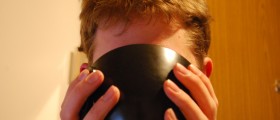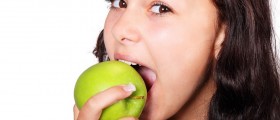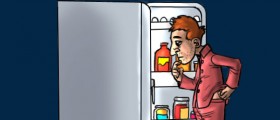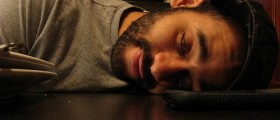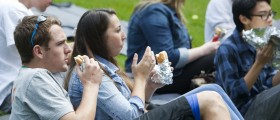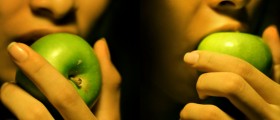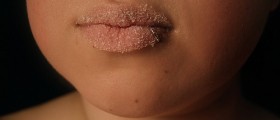I have had this issue for a long time (maybe my whole adult life). But have noticed when I switch to a low or no carb breakfast and lunch the effect are low to none. However it still at times does make me a little tired, but not ready to sleep involuntarily. Also I noticed prepared packaged foods often cause this response as well (no matter the carb count). I do much better eating vegetables and meat bought fresh (except canned tuna for some reason). I am not sure why this happens but maybe I am allergic to a preservative they use. But anyway the metabolism information above about our body and the different types of fuels used makes sense, especially the blood sugar feeding every cell in the body. But the part that interested me most was feeding the fat cells, oh my gosh no thank you! We store fat when we have excess fuel of this type for the body to use as energy later, why would we wish to feed those cells and help the grow? Lower the carbs a bit and balance it with protein, do not cut out the carbs all the way. Just figure out what your calories should be for the day and make sure your protein is twice that of your carbs. But remember to stay within you calorie level and you should be fine. At least it works for me when I do it. But this may not help all people, try it for 2 weeks and if there is no discernable difference then see a doctor, you may have a more serious problem.
Our bodies are well designed machines, and like all machines if they are properly maintained they run smoother and longer. This is no accident either, not evolution (random chance).
Loading...
Loading...
I'm still following this thread and will continue to do so as long as it runs, even if that's 30 years (assuming I'm still here!) In a way, the most fascinating aspect of all this is the fact that the entire worldwide medical profession are apparently unaware of this issue which affects so many people so deeply.
Anyway, I'm posting this to let you all know of a development which seems to synch with the last few posts. I don't know about tuna - though I will experement with it in the near future - but I can definitely see a link with carbohydrates now because, since my last post some weeks ago, I've embarked on a non-fad diet. What I mean is that it's not some latest craze, it doesn't use any pills or 'miracle' substances, just trying to eat fewer calories than I use up. So far I've lost roughly 15 lbs in a month, i.e. half a pound (250g ish) per day. Not exactly crash course, but I'm attempting a slow, steady approach as recommended by all the 'experts'. In case you're interested, I'm 5'10" tall and currently weigh approx 185 pounds; I don't really have a tstrict target weight, but around 168 pounds would be a good start. Unfortunately, vigorous excercise is out for the time being due to ill health but I'm trying to walk a lot more. It all helps..
The faddiest thing about my diet is that I'm eschewing carbohydrates of the floury/starchy sort. Not quite religiously as I'm eating fruit and salads, but no breads, pasta, rice or potatoes, or at least, only a tiny amount, and only occasionally.. And I'm getting noticeably less tired after eating. The main reason for this minimal carb intake isn't fear of the calorie content of these foods so much as because even a very small amount of such food has the exact opposite effect to that which it should do; instead of filling me up, I'm left feeling even hungrier but increasingly bloated. My carbo-cravings start running full blast again; even after a modest carb-inclusive, diet-conscious meal I actually feel HUNGRIER than before I ate! This has been something of an issue for me all my life (I'm now fifty), although it's gotten gradually but noticeably worse as the years have passed.
One theory here is that as I've aged my digestive ability has deteriorated (like everything else! : ) so that 'troublesome' foods - in my case these are carbs - are a struggle to process. This seems to have the effect of my body 'thinking' that it hasn't actually been fed, but at the same time as my appetite having been aroused by the taste sensation. Sorry if this sounds far fetched, I'm not a doctor or scientist, just taking my (current) best guess.
So to sum up: Yes, on this diet I'm definitely a lot less prone to that god-awful narcoleptic sleep compulsion after eating. How much is lack of carbs and how much is due simply to less food intake is difficult to judge; as I say, in my case the two go together because eating carbs invariably leads by default to greater consumption due to the immediate onset of truly insatiable carb craving, so I guess it's something of a moot point for now. And there's always the distinct possibility that my actual overall metabolism is altering slightly with the dieting process..
Loading...
The Carbohydrate Addict's Diet
The Atkin's Diet Revolution
Sugars, Flours and Wheat and why they make us hungry, sick and fat by Joan Ifland.
Food Addiction: The Body Knows by Kay Sheppard
Anatomy of a Food Addiction by Anne Katherine
I have also done tons of personal literature research in the Medical Journals for articles and experiments done demonstrating the physiological addictive nature of sugars and refined carbohydrates.
There is an equal amount of research, however, showing that these things are not addictive. Should I ever get the chance to work on my PhD in Addictionology I want to do research to test this hypothesis: Some people are physiologically susceptible to carbohydrate addiction. I would like to know what the difference between those who are and those who aren't. Is it genetic? An allergy? Is there a family history of obesity, bulimia or alcoholism?
I know that when I eschew refined carbs I am clearer headed, less fatigued, have fewer cravings and lose weight.
Loading...
@ JoyESS1:
"Some people are physiologically susceptible to carbohydrate addiction" - (my italics).
FWIW I believe you're spot on; most definitely a physiological cause rather than psychological. I think we need to be cautious about the word 'addiction', since this is technically diagnosable as a medical condition; perhaps this is one reason why the medics disagree, almost as if they're partly disagreeing on a point of semantics, maybe. But for our purposes, whatever the technical subtleties, the word addiction is as good as any, since the cravings for refined carbs are powerful enough to qualify.
You go on to mention: "Is it genetic? An allergy? Is there a family history of obesity, bulimia or alcoholism?"
Well, in my case yes there is; I'm not trying to hijack here, but I really think this is relevant. I've never been actually obese, but all my life, even as a child, I've had a flabby pot belly, which I was able to lose only with the greatest difficulty and the strictest - almost obsessional - diet and excercise regimen. I inherited my mother's alcoholism (it nearly killed me but I've been dry 20 years now) and I've had periodic bouts of bulimia, sometimes lasting months, since my late teens. My mum had the very same issues, which, combined with other peoples' evidence, convinces me that yes, it is indeed genetic, at least in some cases. And there is a school of thought among the professionals that alcoholism is actually a form of allergy; I read somewhere of a suggested link between addiction and allergy (wish I could recall where).
Thanks for posting. I became somewhat disillusioned with self help books a long time ago, but I may well take a look at some of those that you list, so please post if you'd recommend one or two of the titles more than the others.
Loading...
Kay Sheppard or Anne Katherine's books really go into the details of the "allergy of the body" idea from a medical point of view.
congrats on getting off the alcohol! I am a food, drug, sex, cigarette, alcohol, whatever, addict myself and have been clean for 33 yrs!! Off cigarettes for almost 13 but the food just keeps kicking my butt! I too hadd long episodes of bulimia but mostly just dieted myself up to 433 lbs and asthma, diabetes, degenerative joints, arthritis, pulmonary embolii. What's worse I once lost it all and kept it off for 10 yrs w the help of a support group and rigid eating plan but then put it all back on again and nearly died. I have since had weight loss surgery and relost 134 lbs but seem stuck again for several months now.
I know that isn't the scope of this topic but for me the refined carbs can practically make me comatose or even like a drunk passing out after eating them. Still living w/o them entirely just seems too overwhelming right now. Thanks for reading and asking...btw I only came in anonymous by mistake last time.
Loading...
I eat low Carb under 25 a day; I have 2 hard boiled eggs for breakfast and 1 string cheese. For lunch 3 cups salad, low carb dressing, a few chopped veggies, 1 string cheese and some celery. Dinner is fish or chicken and sometimes a red meat maybe a veggie and if I crave a snack I have a few pork rinds. I am hypothyroid and "lazy stomach" meaning I don't digest foods like I should. Some of that can be due to Hypothyroidism and maybe age (59). I am over weight and have struggled with that since in my teens but worse after the age of 40. I have lost 11 lbs in the past month so I am doing something right in that scope but even so it's difficult. Even after cutting out all the bad carbs; rice, flours, pasta, breads etc I literally fall asleep at work every day. My sleep most nights is between 6.5 to 7.5 hours of sleep yet exhausted by the time I get to work. Eating makes it worse after breakfast & lunch but not as bad after dinner. I have had all the blood work, no lupus but I do have inflammation in my body but markers do not show up on blood work. I take meds for the thyroid & lazy stomach but they do nothing for the tiredness. The only thing I have found that gives me relief is 5 hour energy drink. There's always more to everyone's story and too long to mention it all here but for me low carb eating has not fixed or in anyway put a dent in my day time sleepiness. I think it has to do with my adrenals yet I can't get any doctor to help me on that. You say adrenals and they give you this look, mention adrenal fatigue and they tell you that they don't think that is it. What are we suppose to do? Live like zombies, living in a fog for the rest of our lives??
Loading...
Thanks I'm having the same problem and its defo for me food related as I've had lots of blood tests done and all were clear. I'm going to go on a vegan diet and see how I get on with that the eat to live seems a good option right now for me. Good luck
Loading...
Sorry about my post above... i was tring to quote some id**t that is insisting we are all just lazy... geez
Im a male 41, i live in Alberta, Canada
i dont think this has anything to do with geographic location....
I noticed it affecting me about 5-8 years ago... it came on slowly and has progressively gotten worse... so it could have been affecting me before to a lessor extent... i may have brushed it off as turkey dinner napping.
I do notice it comes in waves... can affect me for days on end... then gone for a few... maybe i crack down on my diet.. but i definately feel better if i fast and just take diet pills... eatting in the evening is much better but if i eat anything morning or afternoon and my day is shot.
Loading...
Undoubtedly some forum users will have definite, specific medical conditions which, whether they've been diagnosed or not, are at least contributing to their symptoms. I don't mean to be unsympathetic but I think this is a seperate issue; for example, if someone is type B diabetic, or hypoglycaemic, that is entirely different from what the rest of us are experiencing, even though there may well be a crossover of symptoms. As for those whose health seems 'normal' in most/all other ways, well, I'm still looking for common ground.
I agree, it seems reasonable to eliminate geographical location per se, although if one were to move/emigrate to an area with much shorter days, for example, it would be reasonable to expect a - perhaps quite lengthy - period of metabolic adjustment. Such a move may also involve a change in diet and/or lifestyle, in fact any number of possible variables which might be overlooked because of otherwise perfect health, yet still be contributing factors or even outright causes. But there are just too many of us to whom these circumstances obviously don't apply, i.e. no geographical change, so I think we have to look elsewhere for our 'culprit'.
As many of us have suggested- - myself recently included since I began dieting - simply cutting down on our food intake seems to make a noticeable difference to the level of tiredness we experience after eating. But.. just how much this is due to simply fewer calories, and how much due to less of a particular type of food (carbs anyone?), is frustratingly difficult to ascertain. And even as a basic premise, 'less intake' is far from conclusive. But I have to say that the evidence points in that direction, at least for many of us.
What else do we seem to have in common? Well, many of us seem to have a history of dieting, even though the majority of 'sleeping sickness' sufferers have never been truly obese. Could this dieting be relevant to our sleeping symptoms? I've read that if one has had a tendency to go on weight loss diets then the body can get used to what's called 'famine mode' where it atempts to store as much ingested food as it can as fat, and to do it as quickly as possible. And of course, the most expedient way of doing this is hibernation, possibly triggered, in our case, by eating. Sorry for the melodramatic bold italics, but I want that bit to stand out because it's the closest I've come yet to a theory that might just lead somewhere with this and I'd be very interested in others' opinions.
You may suggest, quite reasonably, "But if this tiredness after eating is the body's way of trying to save energy/store fat, then surely we'd be even tireder when we DON'T eat?" Well possibly, but perhaps this energy saving mode actually needs food intake to physically trigger it? Remember, we're working with a primeval, pre-programmed survival machine (the body) and when we haven't eaten, the body knows that we need to. Perhaps this absence of tiredness on an empty stomach is because the body 'knows' that we need to be wide awake to go hunting? Or we need energy to go foraging, or get in the harvest.. And then, the moment we've satisfied the eating requirement, the body immediately tries to store it?
If this seems a bit far fetched then remember that we cannot actually 'tell' our bodies not to worry, that everything is ok and we're just trying to lose the flab. Our body doesn't understand this; all it knows is its survival programming. After all, dieting, no matter how beneficial or even necessary it may be to an overweight 21st century individual's long term health, is basically interpretable by the body as simply a period of nutrtional deprivation. The reason why I'm cautiously optimistic about this theory is that it includes such a broad cross section of us. Many posters in this thread have reported that they are fitness conscious and have always been active; well, that includes me, but one aspect of my fitness regimen was frequent changes in calorific intake. Whenever I would start back (again) at the gym I would frequently also go on a diet at the same time, even if it were a modest one (although I have to confess here that, being the impatient type, I always wanted fast results so my dieting would often be stricter than was perhaps completely healthy). Does any of this sound familiar?
Just thinking aloud here, people. A few posts back, forum user 'coma':- https://www.steadyhealth.com/discussions/topic/reply/?t=73453 said that one of her family who suffers our tiredness symptoms is a body builder. Not a type you'd immediately think of as having problems with energy levels, but I knew many such guys back in my gym days and bodybuilders' diets are notoriously extreme; alternately "stuff and starve" (in that order) to build up muscle and then lose every micro-gram of fat before a show. And fit, active teenagers/young people; although usually posessed of an enviable level of energy, they also frequently go on diets to lose a few pounds for the beach..
Of course the vast majority of such people will never suffer from our 'sleeping sickness', but we're all different. Whatever is in our metabolism may simply be more inclined for some reason (it may even be linked with the "hoarder's mentality", is your natural tendency to keep old junk in case it "comes in handy one day"?) Could this be linked with a physical proclivity to store fat, which in our case manifests itself partly by sleeping to enforce 'energy saving mode'? I realize I'm reaching here but anything is worth considering.
So to sum up: does anyone else who suffers from eatsleep have a history of dieting or perhaps changes to your diet? It could be for any reason, but I'm thinking along the lines of a regular thing here, even if it was all 'a long time ago'. I'm also thinking that frequent diets could maybe mess with the blood sugar/energy levels/metabolism mechanism in a longer term way. And that all of this seems to get worse for many of us as we've gotten older..
Perhaps another way of phrasing it would be to ask if anyone suffering from 'eatsleep' is: (A) Young (ish)(B) Reasonably fit & healthy in all other ways (no known health problems which could confuse the issue )(C) Has NO history of repeat dieting, and/or weight or food issues? (Be honest here!)
As always, I'll be staying tuned. Look forward to hearing your opinions on this one.
Good luck everybody.
Loading...
P.S.
Re the previous poster's comment: "eatting in the evening is much better but if i eat anything morning or afternoon and my day is shot."
Exactly. I forgot to mention it, but that's another puzzling aspect to this that seems common to many of us. I say puzzling because logically one might assume that eating in the evenings would be worse. Wel, going back to the body "thinking" it's helping us to survive, it knows that it'll be sleeping soon anyway. Or to re-phrase, the natural day to day body clock will be sending its own nocturnal end-of-day signals so there is no need for that almost instant, unnatural narcoleptic shutdown. The body knows that nighttime it will be sleeping anyway, so whatever it does to us to artificially preserve energy levels/fat reserves by rendering us unconscious during our prescribed 'active' hours is unnecessary. Still just thinking aloud..
Loading...
Loading...
Loading...
I found this thread on Google, and I am so glad that what I thought was something I was imagining, is a reality that many others share. I am 56, and used to have a full on job, my brain was alert, fast thinking and I would be going morning till night. Then, about 10 years ago this sleep thing started. I didn't even notice it at first, I just felt less active after lunch than before. Over the years it has become progressively worse, so that now I have to fight off the 'lie down right now' feeling, but 99/100 the sleep wins. I am semi retired nowadays, and couldn't even contemplate getting back into full time working, especially doing what I used to do, I would need concentration levels that I no longer possess. Those jobs that I have tried have all gone wrong, and for the pure and simple reason that 1pm onwards everything shuts down, my brain simply feels like it has been injected with something, and it all stops.
I mentioned it to my GP but was told that this is a known condition, but that little could be done about it. I hardly dare to touch food all day, and just have a meal around 7pm, knowing that I won't be going out so it doesn't matter.
In some ways I think, maybe my body is simply grabbing sleep that it says it needs, and as I am lucky to be at home I can just surrender, and flake out. Maybe I as I am allowing my body to do what it wants, I am actually allowing it to live naturally, and maybe its the artificial life of working hours etc that is the problem, not me? So, long term, maybe I am living a healthier more natural cycle?
The rest of the time I am fine, and after the sleep, which can be anything from 10 minutes to 2 hours, my brain slowly comes back to life again. It is a feeling that only those that share this condition will understand.
Loading...
I have been suffering from this problem since my late 60s. I get sleepy after taking my vitamins - drinking a cup of coffee/tea - a light or heavy meal - when it first started to happen I asked my doctor about this - she more or less told me this happens after a meal and is normal. I take complete blood tests every year for my annual physical - and blood tests for my cholestorol every 3 months. I am not diabetic - I don't take any prescribed medication except a 25mg water pill (Hydrochlorothiazide" for my blood pressure. I take 500 mg Vitamin C - 1000 UI Vitamin D3 - 200 UI Vitamin E - 100 mcg B12 - 81mgadult aspirin. I am now 77 years old - this problem is affecting the quality of my life. I become more or less like a "zombie" after I put anything in my mouth no matter how little - I get a heavyness on the top of my head and I can't focus on anyhing - I just have to lie down. Who should I see who could shed some light on this problem?
Loading...



